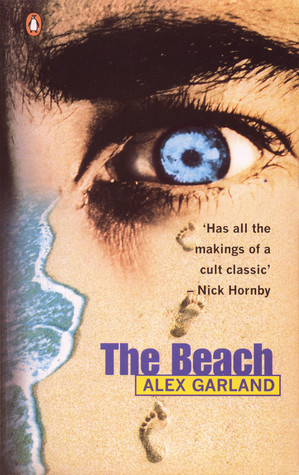Alex Garland
On it’s 25th anniversary, Garland’s debut novel, The Beach, remains as frenetic and brilliant as it ever was but now it benefits from nostalgia.
A true classic and not just in the travel genre.

It has been 25 years since Alex Garland arrived on the literary scene with his applauded debut, an anti-tourism novel which was quickly adopted by backpackers and travellers everywhere.
The story was inspired by the author’s time in the Philippines, particularly the beaches of Palawan island but he chose to set it in Thailand due to the greater familiarity of the travelling community.
25 years later the book has also become somewhat of a prophecy as we grapple with climate change, consumerism, over-consumption and the destruction of biodiversity, which are the fears of the anti-hero narrator Richard and his psychological companion, Mr Daffy Duck.
Daffy warns Richard that humans will destroy the Beach, a sanctuary for travellers who are bold enough to find it, travellers like him and his friends; Etienne and Francoise. Richard descends into a Colonel Kurtz-like madness becoming estranged from wider society that seems alien, perverse and hedonistic.
If you have not read it then I will not spoil the end but suffice to say, anything humans touch cannot remain unspoiled since they are predisposed to sharing and boasting which encourages ever greater numbers to arrive and upset the balance.
The writing is frantic and fast-paced but never disjointed. The dialogues are short but filled with emotion. Some members of the beach community lack characterisation but that could be because Richard is an unreliable narrator and relatively disinterested in some of them as people.
The true star of the novel is Richard’s interactions with Mr Daffy Duck, his psychological alter-ego who goads Richard into seeking masculine danger, inspired by the war he was promised in his youth Vietnam movies, Gulf War 1) but never volunteered for and his love of computer games.
If you have not read it then I would absolutely recommend it as a must-read but be warned, the novel is also the last great time before mass communication was enabled.
As an early millenial who grew up with an analogue childhood and a digital adulthood, The Beach was published at the point when such adventures could likely never happen again. The world is too saturated in mobile devices, cameras and instant communication.
In 1996, in order to communicate, we were still reliant on physical mail, long distance telephone or finding an internet cafe to send the occasional Hotmail or Excite email.
It was entirely plausible that someone could disappear into South East Asia for 6 months with minimal contact back home and only have a dozen grainy photos to show for their experience.
Today; such a world is just a memory.
In 2018 I visited Koh Samui with a friend and independent travel was extremely hard to find; I took my moped, against regulations, into the interior jungle, down unmarked trails, following locals who lived amongst the sweltering conditions and I still found intagrammers posing at rock formations.
We organised a boat incursion for snorkelling and travelled an hour to the marine park island of Koh Tao. Upon arrival we were dismayed to find over a hundred people posing specifically in the surf whilst taking selfies.
My friend Tony shrugged and said ‘it is a years worth of photos‘. I wasn’t sure I understood and asked him to explain further.
Instagrammers will take 200 or 300 photos and then drip-feed them into their feed every day so it looks like perpetual travel. This is just a job for them.
In that regard, The Beach has become a prescient prediction of everything that it feared. Masses of tourists, dumping tonnes of waste into biodomes for kudos and bragging rights.
As the stoic Jed asks partway through the novel –
One day I would like to ask the authors of Lonely Planet, what is so fucking lonely about the Khao San Road?
It is a brilliant read, but don’t be surprised if it leaves you disillusioned and yearning for a time that can never be regained.